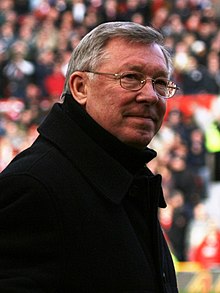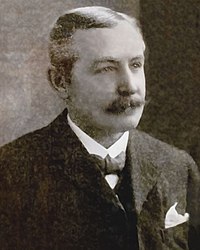Manager (association football)


In association football, the manager is the person who has overall responsibility for the running of a football team. They have wide-ranging responsibilities, including selecting the team, choosing the tactics, recruiting and transferring players, negotiating player contracts, and speaking to the media. In professional football, a manager is usually appointed by and answerable to the club's board of directors, but at an amateur level the manager may have total responsibility for the running of a club.
Responsibilities
[edit]The manager's responsibilities in a professional football club usually include (but are not limited to) the following:[citation needed]
- Selecting the team of players for matches, and their formation.
- Planning the strategy, and instructing the players on the pitch.
- Motivating players before and during a match.
- Delegating duties to the first team coach and the coaching and medical staff.
- Scouting for young but talented players for eventual training in the youth academy or the reserves, and encouraging their development and improvement.
- Buying and selling players in the transfer market, including loans.
- Facing the media in pre-match and post-match interviews.
Some of the above responsibilities may be shared with a director of football or sporting director, and are at times delegated to an assistant manager or club coach.
Additionally, depending on the club, some minor[citation needed] responsibilities include:
- Marketing the club, most especially for ticket admission, sponsorship and merchandising.
- Growing turnover and keeping the club profitable.
These responsibilities are more common among managers of small clubs.
European and North American managers
[edit]The title of manager is almost exclusively used in British football.[3] In other European countries and rest of the world in which professional football is played, the person responsible for the direction of a team is awarded the position of coach or "trainer" is known as head coach.[citation needed] For instance, despite the general equivalence in responsibilities, Gareth Southgate was always referred to as the manager of England, and Julian Nagelsmann is described as the head coach of Germany, however, Thomas Tuchel is officially labelled at the Head Coach of England. Germany also has a team manager role that is subordinate to the head coach and is currently held by Rudi Völler.
The responsibilities of a European football manager or head coach tend to be divided up in North American professional sports, where the teams usually have a separate general manager and head coach (known as a field manager in baseball), although occasionally a person may fill both these roles. While the first team coach in football is usually an assistant to the manager who actually holds the real power, the North American–style general manager and head coach have clearly distinct areas of responsibilities. For example, a typical European football manager has the final say on in-game decisions (including player line-ups), and off-the-field and roster management decisions (including contract negotiations). In North American sports, those duties would be handled separately by the head coach and general manager, respectively.
See also
[edit]- List of football managers with most games
- List of longest managerial reigns in association football
- Caretaker manager
- Player-manager
- League Managers Association for managers in England
- Football Manager, a simulation video game for playing as a manager.
References
[edit]- ^ Saffer, Paul (21 May 2016). "The unsackables: Europe's longest-serving coaches". UEFA. Retrieved 7 November 2020.
- ^ "Europe's top coaches convene in Nyon". UEFA. 2 September 2015. Retrieved 7 November 2020.
- ^ "Manager or Coach?". Football Italia. 5 September 2008. Retrieved 30 January 2011.
